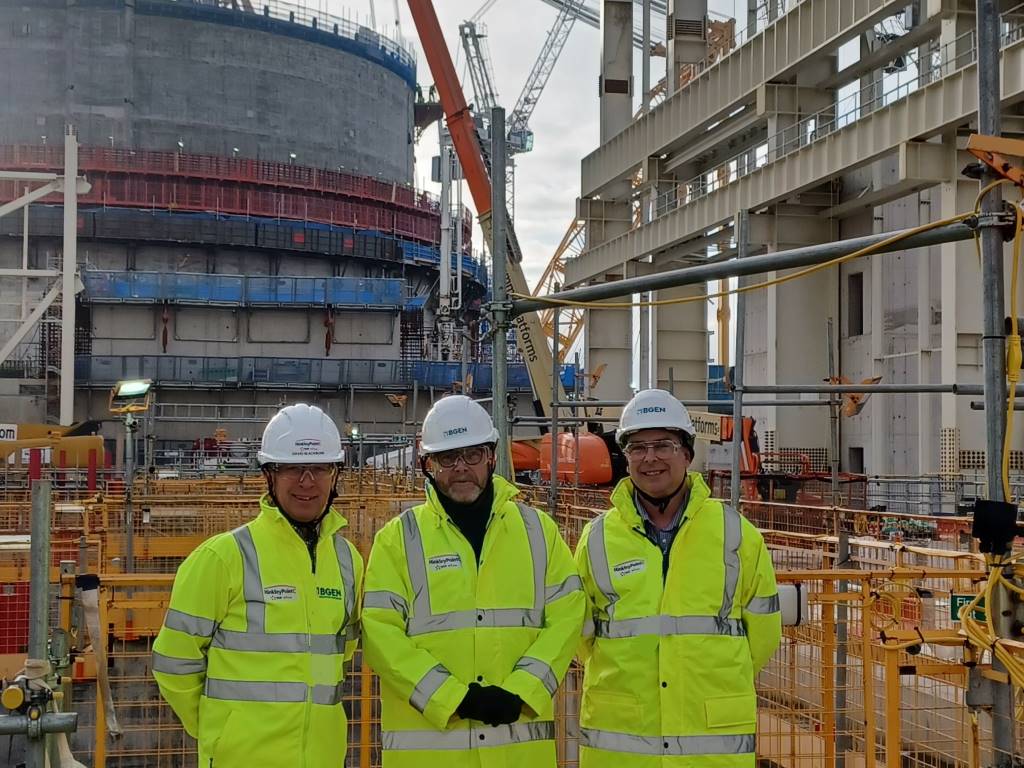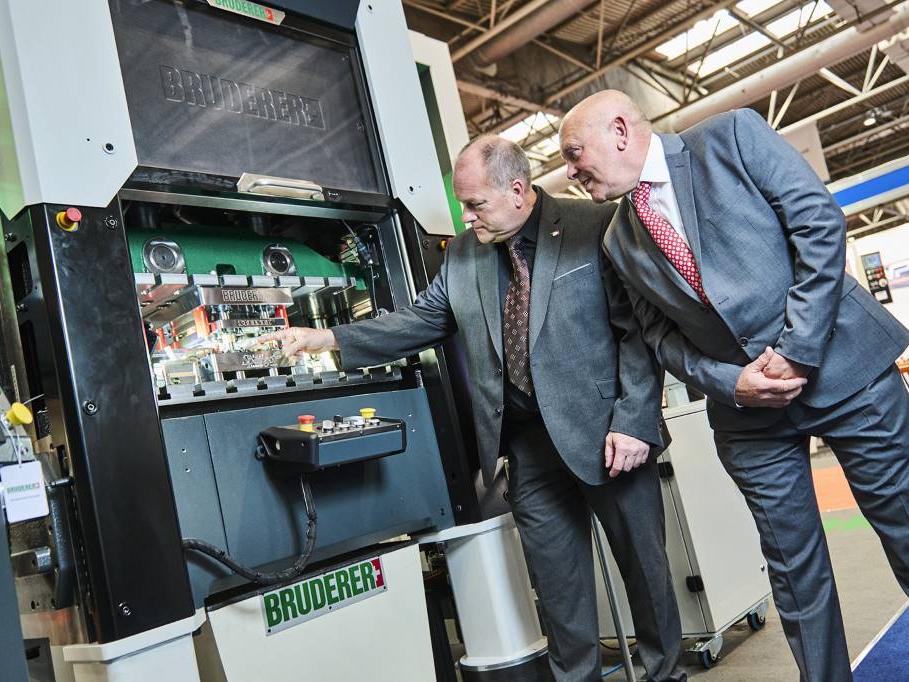Budget 2021: UK manufacturing reacts to Rishi Sunak’s new measures

The chancellor Rishi Sunak has announced a number of measures in the latest budget and spending review. Here's some reactions from industry.
Commenting on yesterday’s announcement, Stephen Phipson, chief executive of Make UK, said: “Make UK welcomes the direction set out by the Chancellor but hopes to see more focus on manufacturing as the plans unfold. At a time of such hardship for so many people the chancellor was right to prioritise help for the most vulnerable and those on low incomes. Manufacturers agree this has to be a priority for spending in the short term and will support his aim.
“Overall, however, as far as manufacturers are concerned the rest of the statement generated a mixed response. While there were some welcome announcements on business rates and the extension of the annual investment allowance, the announcements on skills amounted to little, if any, new money while the delay in the R&D spending target goes against the aim of making the UK a science superpower. In addition, we had hoped to hear more about driving digitalisation and Net Zero Transition, issues at the forefront of the next industrial revolution. Furthermore, while growth is returning, future out the prospects look anaemic and will not be helped by the substantial tax rises companies are facing
“The current approach would benefit from a long-term economic plan. We face huge technological and societal challenges. Manufacturers are ready to seize the opportunities these challenges will provide and, in many cases, are already providing many of the solutions.
“But they can only do so if Government is willing to work with the grain of business and industry. This requires a partnership to develop the vision for our economy in the medium to long term and the development of policies which will support it.”
Reforms to business rates
Verity Davidge, director of policy at Make UK, commented: “Manufacturers will be pleased to hear today of the Chancellor’s offering of both a 12-month relief on businesses rate hikes arising from premises investment, and the cancellation of the planned increase to the business rates multiplier. The threat of increased rates has always had a suppressing effect on manufacturers likelihood to invest in their plant, so this relief, albeit short-term, is a step in the right direction in giving the manufacturing sector the reliefs and support it needs to deliver Britain’s recovery.
“However, for many businesses, just a period of twelve months won't be relief enough for those businesses who already struggle with their rates payments. Further work needs to be undertaken as part of the much-awaited Business Rates review, particularly where productivity-enhancing plant & machinery improvements can raise business rates.”
R&D targets
Mr Davidge said: “The government’s decision push back on its target R&D expenditure is a disappointing response to the Government’s ambition to be a science superpower. With two thirds of all R&D expenditure coming from the UK manufacturing, this move undermines future business confidence to invest in new technologies and innovations.
“Another missed opportunity was a true expansion of the R&D tax relief scheme, the most commonly used form of innovation support among manufacturers. While the Chancellor dipped his toe in the water with the inclusion of data and cloud costs, manufacturers would have wanted to see employers to claim for capital expenditure needed for R&D, as well as allowing deductions for the opportunity cost of plant being used for R&D as opposed to commercial production.”
On extension to the annual investment allowance, James Brougham, Senior Economist, said: “Industry will welcome the extra certainty the extension of the uplift to the Annual Investment Allowance will afford it. This maintained uplift gives manufacturers the capacity to commit to larger-scale investments in a period where businesses have been more bearish with their cash than usual.
“However, to best serve the industry, Government should maintain this higher level of investment allowance, and give the economy a significantly longer five to ten year time horizon to make use of the scheme, as opposed to snap single year extensions which limit use of the scheme to only those most reactive businesses.”
Investment in skills
Bhavina Bharkhada, head of policy and campaigns, said: “While on the surface, the Chancellor looked to take steps towards tackling training our current and future workforces, what was announced will make just a small dent in what is an increasing skills gap.
“As stubborn labour market shortages continue to hold back manufacturers, stifling growth and recovery across our regions, manufacturers will welcome shorter, sharper training courses such as skills bootcamps, but these should not replace much needed and radical reform to existing skills and training pathways like apprenticeships.
“For high-wage, high-skill industries like manufacturing, this was a missed opportunity to go further in creating an ambitious, modern skills system to match the ambition of manufacturers in the next decade. Government needs to rapidly gear up our skills system for the digital and green future manufacturers are creating, putting in place measures and incentives not just in for short term but for the long term.”
£7bn investment for levelling up
Ms Davidge said: “Today’s announcement of £1.5bn new money will fall short of the required investment needed in wider infrastructure such as local transport and digital connectivity to unlock productivity and growth for our sector. With almost half of manufacturers dissatisfied with the Government’s progress on levelling up to date, levelling up needs to go further than piecemeal support in selected areas, it needs to be strategic and long-term.
“Manufacturers were hoping to see the beginnings of long-term strategy with clear measures to drive up business confidence, spark greater investment across the country, and crucially build national resilience.”
Tony Hague, CEO of PP Control & Automation, a supplier to machine builders, added: The one thing that leaps out the Budget for me is the change in focus around R&D and the new-found desire to try to incentivise more domestic activity.
“This is a very welcome change as the UK as the unenviable track record of being a fantastic idea generator, yet an also-ran when it comes to commercialising these ideas and technologies.
“If we can reverse this by creating a climate where investment and capacity is available on our shores then this could be a real long-term boost for manufacturers, who could be in line for new product introductions and increases in volumes.
“It’s just a shame that the £20bn funding will not come into play until 2024. Why we’re waiting two years is a real ‘head scratcher’ especially when you consider we’re currently vying for pole position in electrification.
“A 42% increase in skills funding also has to be a good thing doesn’t it? Where I would like to see the focus is on ensuring money is available to support higher skilled roles and the creation of training facilities and providers that offer skills we’re going to need not just now, but in three, five, ten and twenty years’ time.
“The biggest worry for businesses at the moment is inflation and it was pleasing to here Rishi mention this at the start of the budget. It’s true that it’s a global issue and I’m not sure what the Government can do whilst the entire world is seeing more demand for goods than actual supply.
“Until that element of the economy rebalances then I think we’ll be paying through the nose for a lot of things we’ve taken for granted.”
Director general of the Institute of Export & International Trade, Marco Forgione said: "It is good news that the Chancellor has announced a rise in the Department for International Trade's budget - in particular the allocation of £45m in funding for the Export Support Service holds out the prospect of really making a difference to how the Government can help businesses to export.
"There is funding too for radical improvements at the border to streamline traders' interactions with agencies. The introduction of a Single Trade Window, the funding for which, to the tune of £180m, has now been announced, is an opportunity for a step change in how trade is done.
"Having an efficient, effective border is a big part of facilitating international trade and so the £838 earmarked for upgrading how people and goods get into and out of the UK should signal a big step forward. Digital technology can offer a lot in terms of removing barriers and enabling companies to get what and who they need to their customers quickly and predictably. If admin can be done in advance away from the border itself it reduces the likelihood of the last minute snags and snarl ups that cost businesses so much.
"In the light of the skills shortages, from which we know internationally trading companies are suffering, the commitments of an additional £554m Adult skills and an uplift for apprenticeships are very welcome. Training people to do roles such as customs compliance or logistics management is essential if we are to boost the UK's international trade performance.
"And as eyes turn towards COP, and the scale of the climate challenge becomes ever more apparent, the moves to green shipping by attracting more carriers to the UK's stringent standards is to be applauded."
Make UK
www.makeuk.org
PP Control & Automation
www.ppcanda.com
Institute of Export & International Trade
www.export.org.uk











